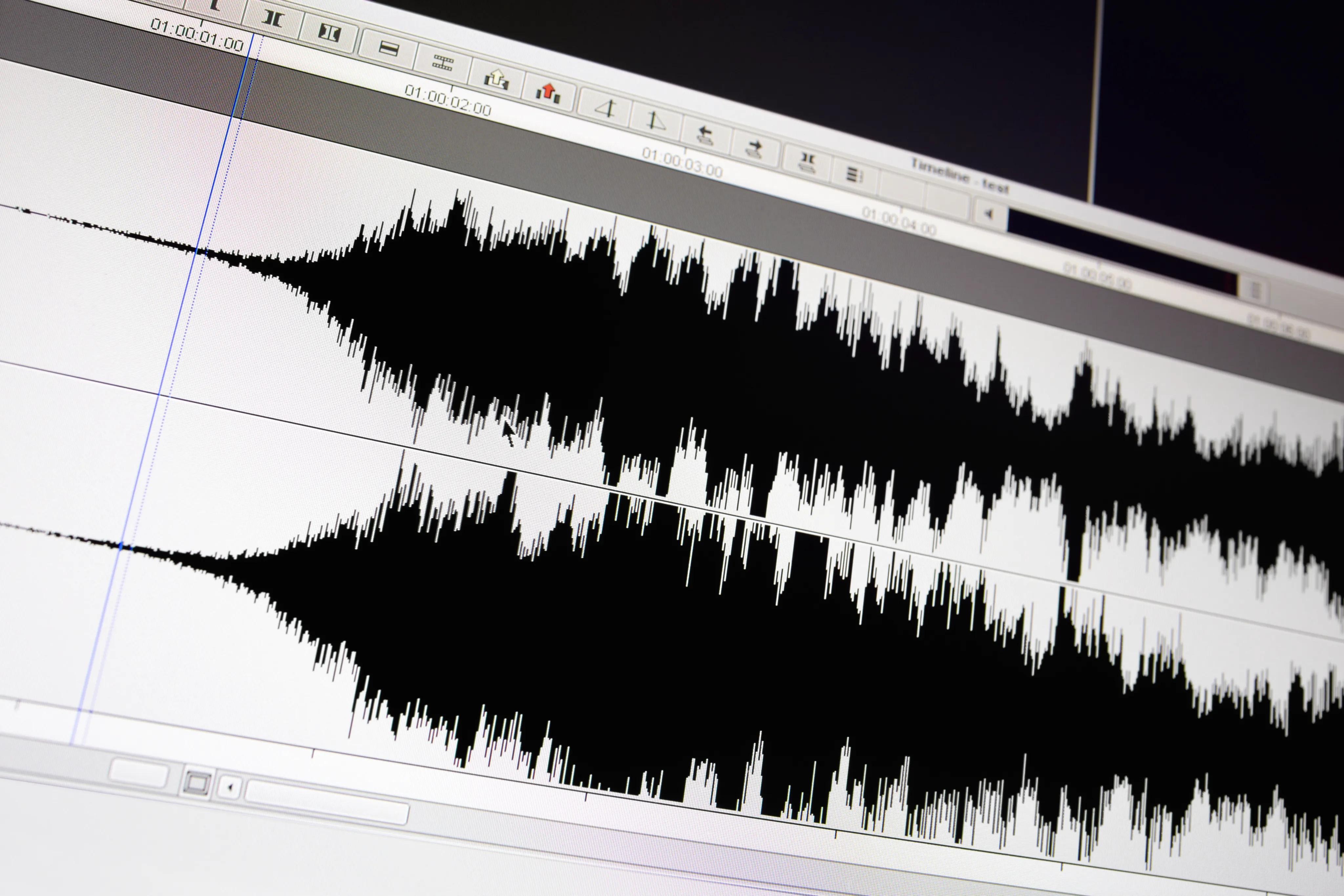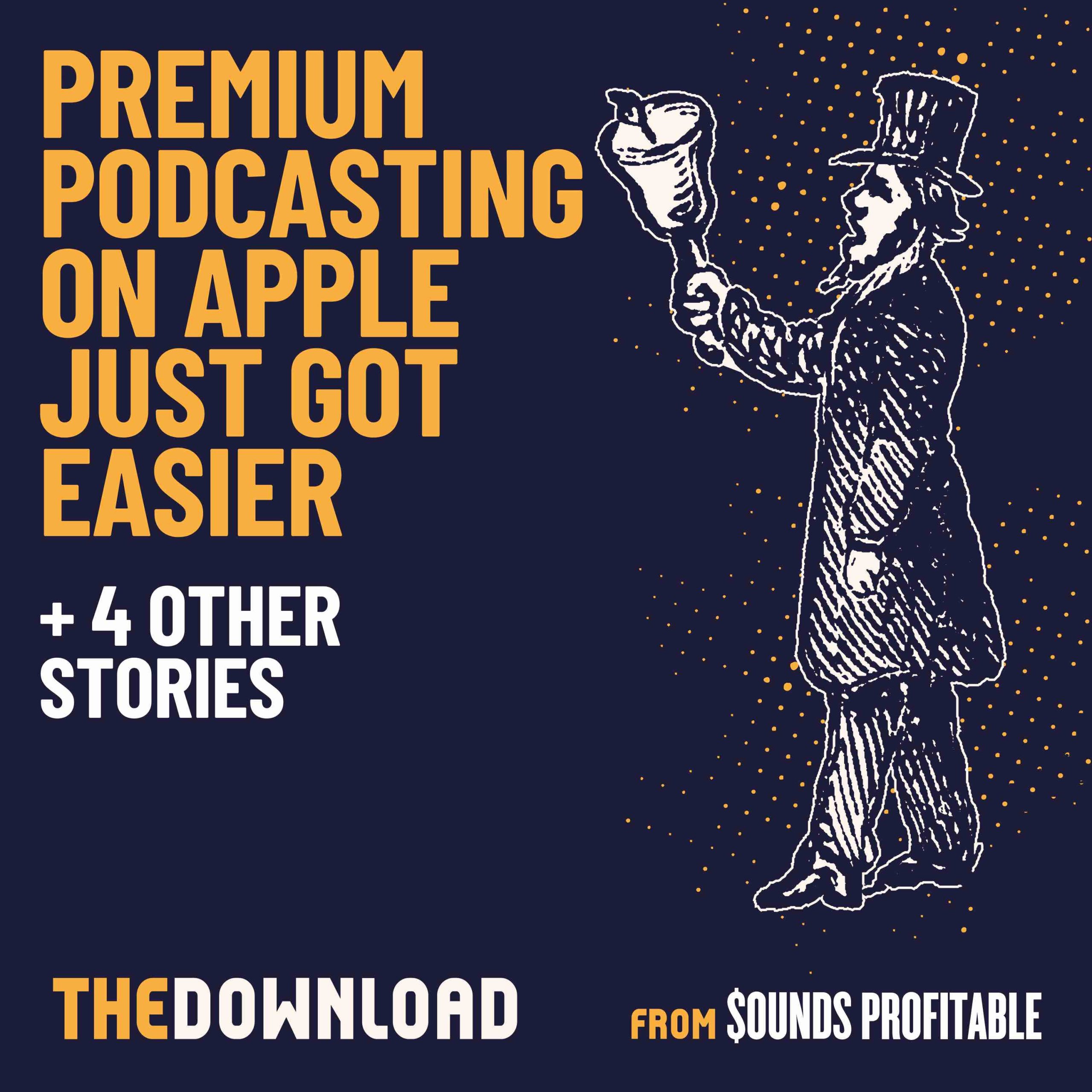This week on The Download: Premium Podcasting on Apple just got easier, Media Monitors slips up on methodology, and Podfest Africa’s annual study is here.
Publishing content to a premium subscription feed on Apple Podcasts is about to become far less painful. This Tuesday Techcrunch’s Sarah Perez summarized the new Apple Podcasts Delegated Delivery system in a rundown of Apple’s new announcements. Quoting the article:
“Starting this fall, a select number of hosting providers will support the Delegated Delivery system, including Acast, ART19, Blubrry, Buzzsprout, Libsyn, Omny Studio and RSS.com. Apple says these providers represent around 80% of listening for premium content on Apple Podcasts, and more services will be added over time.”
Additionally:
“The feature will be available at no additional cost to all creators through Apple Podcasts Connect and creators won’t need a membership to the Apple Podcasts Program to publish their free shows — only to publish premium content.”
Prior to the introduction of the delegated delivery offerings, uploading a premium file to Apple for one’s monthly subscribers was an arduous and time-consuming process. Now the process will be smoother, at least for those on hosting platforms included in Apple’s rollout.
On Twitter, Ashley Carman noted the divide possibly forming between providers when comparing who supports the new Apple feature and who is partnered with Spotify’s similar premium service. The tweet read:
“Spotify works with third parties to support its subscription offering, too. The only overlap is Acast, at least according to the initial partner list. [I’m] curious if this means there’s now additional stratification in [the] podcast world: team Spotify or team Apple.”
In what is pleasantly becoming a weekly segment on The Download, we bring news of podcasting flourishing on a global scale. Last month Podfest Africa published the 79 page report titled “Discovery Tour, Data Edition: Mapping out the present & future of African audio storytelling.”
The study is built off research collected in part with in-depth interviews with podcast producers and industry stakeholders, reviewing existing literature on relevant topics, and a survey of 370 podcast listeners across the study’s target areas of Kenya, Nigeria, and South Africa. Unsurprisingly, podcasting seems to be doing well.
“These results build on existing evidence of the rapid growth of podcast usage in allt hree countries and the evidence that South Africa, Kenya and Nigeria are the most developed podcasting markets on the African continent.”
A quick rundown of some interesting statistics provided: on average over 50% of respondents were women. With all results aggregated the idea podcast episode length across the three represented countries is 30 to 40 minutes. Spotify has a significant advantage over its competitors for distribution in the three countries studied for apps most used to listen to podcasts, clocking in at 35.1%. Apple comes in at a close second with 18.1% of the market share. Google Podcasts, YouTube, Anchor, and Afripods make up the rest of the top contenders.
In its key takeaway section, the study makes a point of stressing that their findings suggest – unsurprisingly – audiences want content influenced by local creators and local companies.
“A key growth opportunity identified is educating media companies to not rely on Western expertise for guidance on podcast production but instead to generate key insights through research from the African continent.”
Continuing the trend of podcast news favoring Tuesdays, for some reason, Alyssa Meyers of Marketing Brew published “Here’s What You Missed at the 2022 IAB Podcast Upfront.” Quoting the article:
“If you couldn’t make it last week (or if you were already burnt out from NewFronts), we tuned in and rounded up some of the most important announcements and themes of this year’s event, which positioned pods as ‘mainstream, prominent, and influential.’”
Meyer’s reporting condenses a substantial amount of IAB content down to three main points plus a bonus regarding Disney – ever a fan of conglomerating – consolidating podcasting brands under one banner. The three common topics focused on diverse hosts and audiences, statistical dumps in the form of podcast trend reports, and quite a few mentions of brand safety.
That last point might perk up the ears of long-time Download listeners, as brand safety is a recurring topic in more places than the IAB UpFront. Even last week’s episode included coverage of a story involving ethics in adtech and its impact on brand safety.
This Monday Media Monitors published the results of a listeners survey conducted over two weeks in March, all bundled with the enticing headline “NPR Slips as Smaller Publisher Capitalize.”
The findings begin with a ranking of the top ten publishers from the top 200 podcasts for the first quarter of 2022. The iHeartPodcast network comes in first place, followed by Spotify in second with Amazon Music and SiriusXM tied for third. NPR doesn’t place in the top ten publishers. Editor James Cridland adds vital context in Monday’s issue of Podnews:
“To suggest that NPR isn’t in the top ten of US podcast publishers is obviously untrue; but helpful narrative for its competitor iHeartMedia. Coincidentally, iHeartMedia owns Media Monitors, a fact not disclosed.”
Accountability is key when presenting data like this.Media Monitors analyzed the top 200 podcasts mentioned by respondents in their survey, that conveniently shuffled the deck so their parent company place first while a legacy competitor was shuffled off the list entirely. It was then followed on Tuesday by Edison Research’s Q1 breakdown of US Top Podcast Networks By Reach. Edison’s findings show a fair difference in ranking, with SXM Media coming in first, Spotify in second, and iHeartRadio placing third. NPR rejoins the group and places fourth.
In the interest of full disclosure, the following quote from the press release is from Director of Research at Edison Research Gabriel Soto, who is also be co-host of The Download’s Spanish sibling show La Descarga.
“Edison Podcast Metrics is the only dataset that covers the entire U.S. podcast space. By surveying listeners and measuring their actual consumption, the data doesn’t depend on opt-ins from networks and isn’t subject to the various issues with counting downloads. These top networks offer a diverse range of shows that appeal broadly to listeners.”
Methodology matters. Who owns the ranking company matters. Opt-in will always be incomplete and the techniques used to fill those gaps matter.
Another Tuesday article joins the episode with James Hercher’s AdExchanger piece on changing attribution tech and brand reactions.
New models of attribution are coming for all of advertising, challenging the incumbent Multi Touch Attribution. Companies like Measured, Triple Whale, and Northbeam are all taking new approaches as old ones fail to deliver. The following quote contains a nested quote from Parachute’s VP of Growth Ian Yung.
“One social media platform stuck out as an early win for Measured, according to Yung. Parachute was spending in the low six figures per month on the platform. “And they were obviously giving us reporting that it was very profitable.”
Upon closer inspection, Measured found Parachute’s spending on the unnamed platform could be cut to zero and show no impact on sales. An all-too familiar adtech story. Quoting the article again:
“Podcast advertising is another category that Parachute rethought once it had a measurement testing regime in place. Podcast attribution often banks on listeners redeeming a particular code, which under-credits the channel. “Podcasting is one [rarer] example where we have to take the reporting and increase what it has on our end to capture the true value,” Yung said.”
Companies outside of podcasting are coming into the adtech space, and fast. It just so happens the podcasting industry has been operating steadily without widespread MTA adoption in the first place.


 "
"




